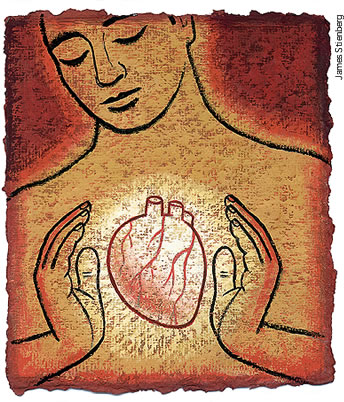
Dramatic new research findings from the
Miller School of Medicine show a stem cell-based treatment
may help prevent muscle damage caused by a heart attack,
a problem that leads to congestive heart failure in thousands
of Americans every year.
The phase one trial was designed to determine
the safety and efficacy of infusing adult human mesenchymal
stem
cells intravenously in patients within days of a heart
attack. Fifty-three patients were enrolled at ten medical
centers across the United States beginning in February
2005. In the trial, patients were randomized to one
of three doses of stem cells, and each dose was compared
with placebo.
“Over the six month follow-up period,
the stem cell-treated patients had lower rates of side
effects such as cardiac
arrhythmias, and they had significant improvements
in heart, lung, and global function,” says Joshua
Hare, M.D., professor of medicine, director of the
Interdisciplinary Stem Cell Institute at the Miller School,
and principal
investigator for the entire study. “Echocardiography
showed improved heart function, particularly in those
patients with large amounts of cardiac damage.”
The study findings were presented at the
American College of Cardiology’s annual meeting in the spring.
As a cell-based therapy, mesenchymal stem
cells have a number of unique advantages: they can be
taken from
genetically distinct donors, are easy to prepare,
and have a tendency to collect within injured areas. |